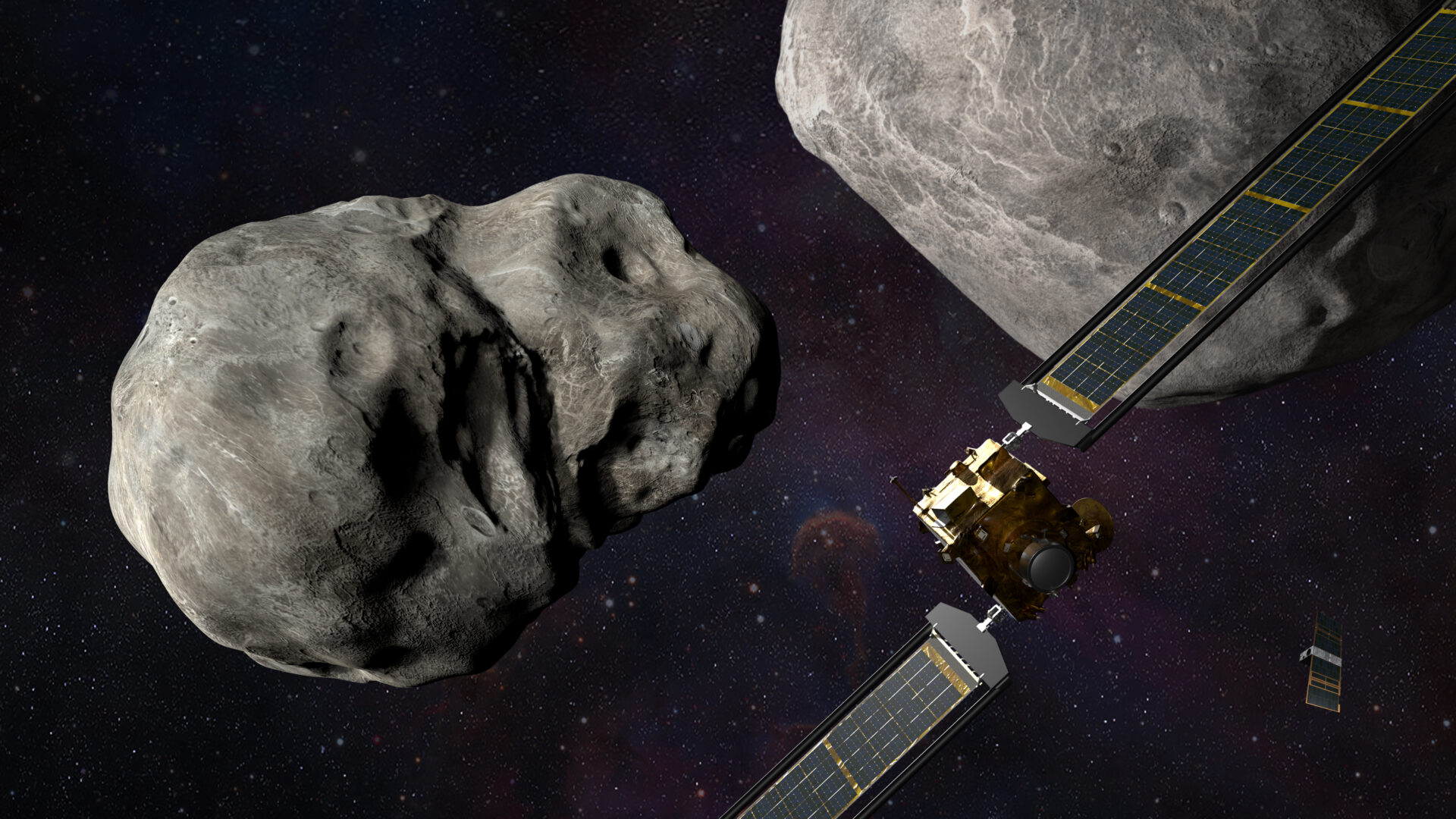
SpaceX to Launch Experimental NASA Asteroid Redirection Mission Next Week

Image: NASA/Johns Hopkins, APL/Steve Gribben
On Friday, SpaceX announced that the static fire test for NASA’s experimental Double Asteroid Redirection Test (DART) mission had been completed successfully and that the pair are now targeting Tuesday, November 23 at 10:21 p.m PT for launch.
NASA will intentionally crash the DART spacecraft into an asteroid to see if that is an effective way to change its course, should an Earth-threatening asteroid be discovered in the future
— SpaceX (@SpaceX) November 19, 2021
The DART spacecraft will launch atop SpaceX’s reusable Falcon 9 booster, headed straight for an asteroid in the Didymos binary system. The mission is set to be the first demonstration of the kinetic impactor technique to change the motion of an asteroid in space.
NASA plans on intentionally crashing the spacecraft into an asteroid to see whether an impact of that nature could change its course. The result will ultimately determine whether such a defence mechanism could be used to deter an Earth-threatening asteroid, should one be discovered in the future.
“DART is a spacecraft designed to impact an asteroid as a test of technology. DART’s target asteroid is NOT a threat to Earth. This asteroid system is a perfect testing ground to see if intentionally crashing a spacecraft into an asteroid is an effective way to change its course, should an Earth-threatening asteroid be discovered in the future,” explains NASA’s Planetary Defense Coordination Office.
“While no known asteroid larger than 140 meters in size has a significant chance to hit Earth for the next 100 years, only about 40 percent of those asteroids have been found as of October 2021”
Speaking of static fire tests, SpaceX’s Starship SN20 recently cleared a multi-engine static fire test (with thrust) in anticipation of its first orbital launch. The company originally had its sights set on July for the first attempt, but the launch has since been delayed.
Last week, SpaceX and NASA launched the Crew-3 mission to the International Space Station (ISS) following several delays.

